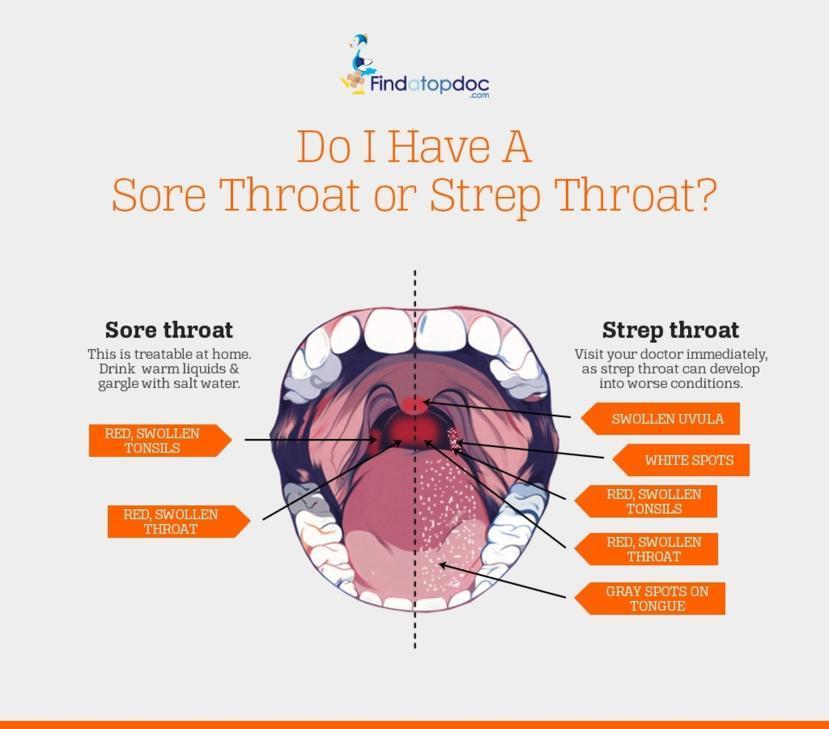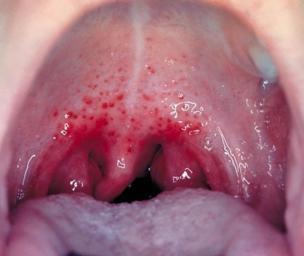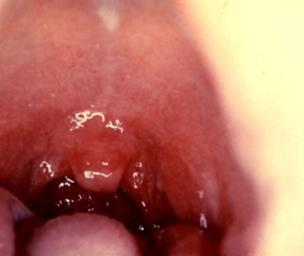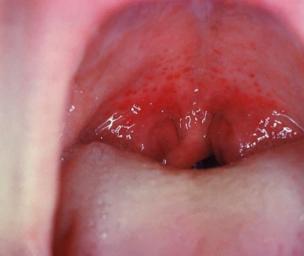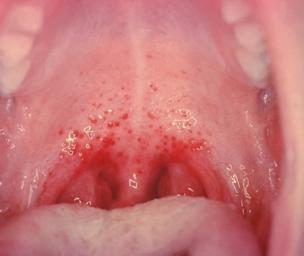Do I Have Strep Throat?

What is strep throat?
Strep throat is the most common form of bacterial infections of the throat and tonsils, resulting in inflammation and irritation.
Causes of strep throat
Strep throat is caused by different types of Streptococcus bacteria. The severity of the condition differs from one type of bacteria to another. Not all sore throats are caused by streptococcus. Viral infections also result in sore throat. But viral infections are often associated with symptoms of cold like sneezing, coughing and runny nose.
Symptoms of strep throat
- Sudden and severe sore throat
- Pain while swallowing
- Sudden fever over 101oF
- Swelling in the lymph nodes and tonsils
- Chills
- Loss of appetite
- Headache
- White patches at the back of throat
Some of the less common symptoms include:
- Red rashes in the skin
- Vomiting
- Body aches
Strep throat spreads easily through contact and tiny droplets in air that contains the bacteria which was let out by the infected person while sneezing and coughing. The person who breathed the infected droplets may show the symptoms within two to five days.
Diagnosis of strep throat
A physical examination and strep test helps in the diagnosis of strep throat. A throat culture is recommended if the rapid strep test is negative but the patient have symptoms of strep throat. For throat culture, the doctor may take swabs from the back of your throat.
Treatment of strep throat
Strep throat generally goes within five to seven days without any treatment. Antibiotics are usually recommended, and this usually reduces the time that a patient is able to spread the disease to others. It also reduces the chance of spreading the infection to other locations. Antibiotics generally do not make recovery faster in strep infection. Over-the-counter medications like acetaminophen and ibuprofen will help in lowering fever and pain.
How to prevent strep throat
Avoiding contact with someone who has the infection is the best way to prevent strep infection. Sharing utensils, toothbrushes and drinking from the same glass increases the chances of infection and hence should be deliberately avoided. Washing hands regularly is a good habit and helps to reduce the chances of infection as the bacteria may live for a short period of time on door knobs, faucets and other objects.
If you have infection, use tissue paper instead of handkerchief to avoid spreading the infection to others. Ensure not to sneeze or cough on others. Take a day off from work or school so as not to spread the bacteria.

